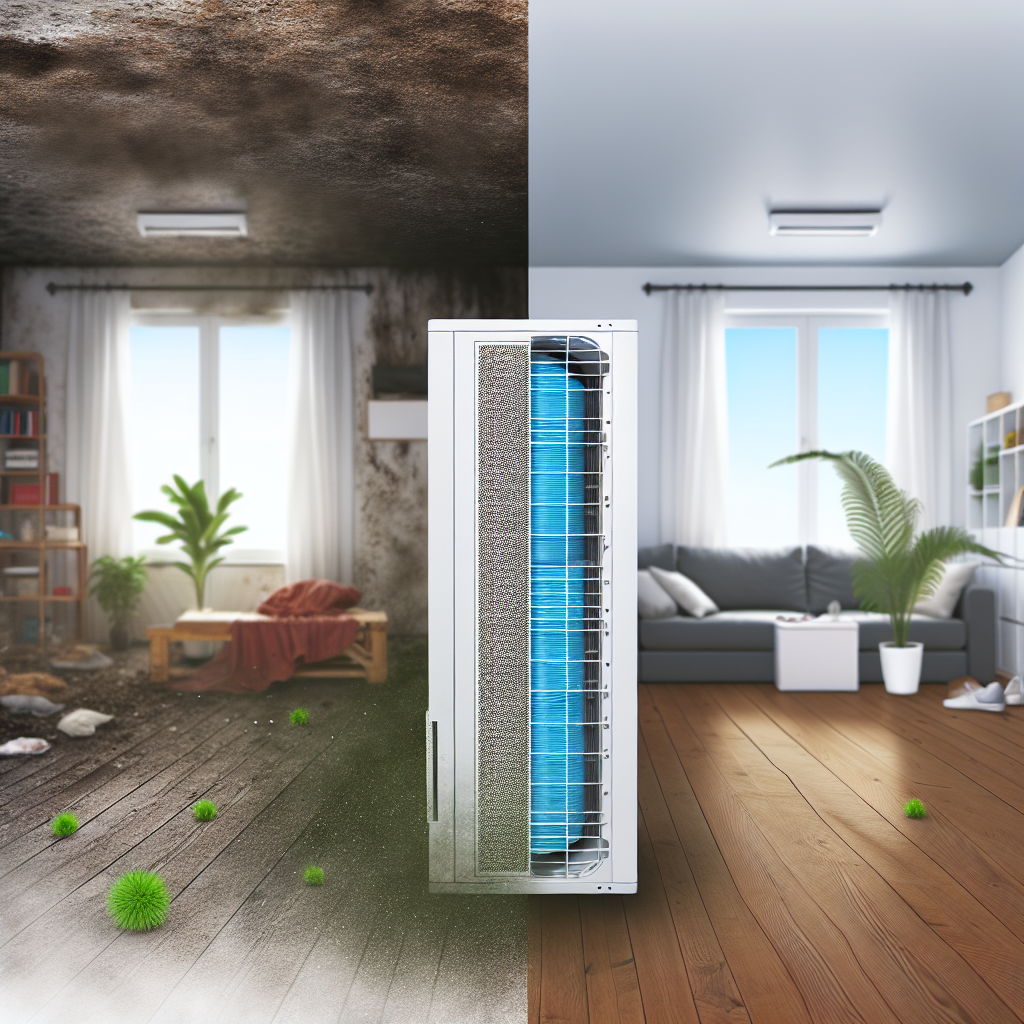Published: Jul 29, 2025

Indoor air quality is essential for the health and well-being of you and your family. Poor air quality can lead to various health issues, including allergies, asthma, and respiratory problems. Here are 10 tips to help you improve the air quality in your home.
Regular cleaning is crucial to maintaining good indoor air quality. Dust, dirt, and other particles can accumulate in your home and affect the air you breathe. Vacuum carpets, mop floors, and dust surfaces frequently to reduce the build-up of pollutants.
Proper ventilation is key to circulating fresh air and removing indoor pollutants. Open windows when weather permits to allow for air exchange. Consider using exhaust fans in the kitchen and bathroom to remove cooking fumes and excess moisture.
Dirty filters in your HVAC system can diminish indoor air quality by circulating dust and contaminants throughout your home. Check and change your filters regularly to ensure your HVAC system is functioning efficiently and providing clean air.
Maintaining optimal humidity levels in your home can prevent mold growth and the spread of allergens. Use a dehumidifier in damp areas and keep relative humidity between 30-50% to inhibit the proliferation of mold and dust mites.
Tobacco smoke contains numerous harmful chemicals that can linger in your home and pollute the air. Avoid smoking indoors to prevent secondhand smoke exposure. Create a designated outdoor smoking area to protect indoor air quality.
Many conventional cleaning products contain volatile organic compounds (VOCs) that can contribute to poor indoor air quality. Opt for natural or eco-friendly cleaning products to minimize exposure to harmful chemicals and maintain a healthy home environment.
Indoor plants not only add a touch of greenery to your home but also help purify the air. Certain plants, such as spider plants, aloe vera, and peace lilies, can remove toxins and improve indoor air quality. Place a few houseplants strategically throughout your home for maximum effect.
Pet dander, saliva, and fur can worsen indoor air quality, especially for those with allergies. Bathe and groom your pets regularly to minimize shedding and dander. Keep pets out of bedrooms and vacuum carpets and furniture frequenly to remove pet hair and allergens.
Many air fresheners and scented products contain chemicals that can compromise indoor air quality. Opt for fragrance-free or naturally scented products to reduce the introduction of additional pollutants into your home. Consider using essential oil diffusers for a natural and pleasant aroma.
Regular maintenance of your heating, ventilation, and air conditioning (HVAC) system is essential for ensuring optimal performance and indoor air quality. Schedule annual inspections and tune-ups with a professional HVAC technician to address any issues and keep your system running efficiently.
By following these 10 tips, you can significantly improve the indoor air quality in your home, creating a healthier environment for you and your family.
**

Our expert technicians are ready to assist you 24/7!
Contact Us Today!Read our latest articles for helpful information about heating, cooling, and air quality.
Regular seasonal HVAC maintenance is essential for maximizing system efficiency, ensuring indoor air quality, preventing...
Read MoreSmart thermostats offer energy savings, convenience, learning capabilities, and integration with smart home systems, mak...
Read MoreMaintaining good indoor air quality is crucial for reducing allergy symptoms during allergy season. Regular cleaning, p...
Read MoreRegular air duct cleaning offers a multitude of benefits, including improved air quality, enhanced energy efficiency, p...
Read More